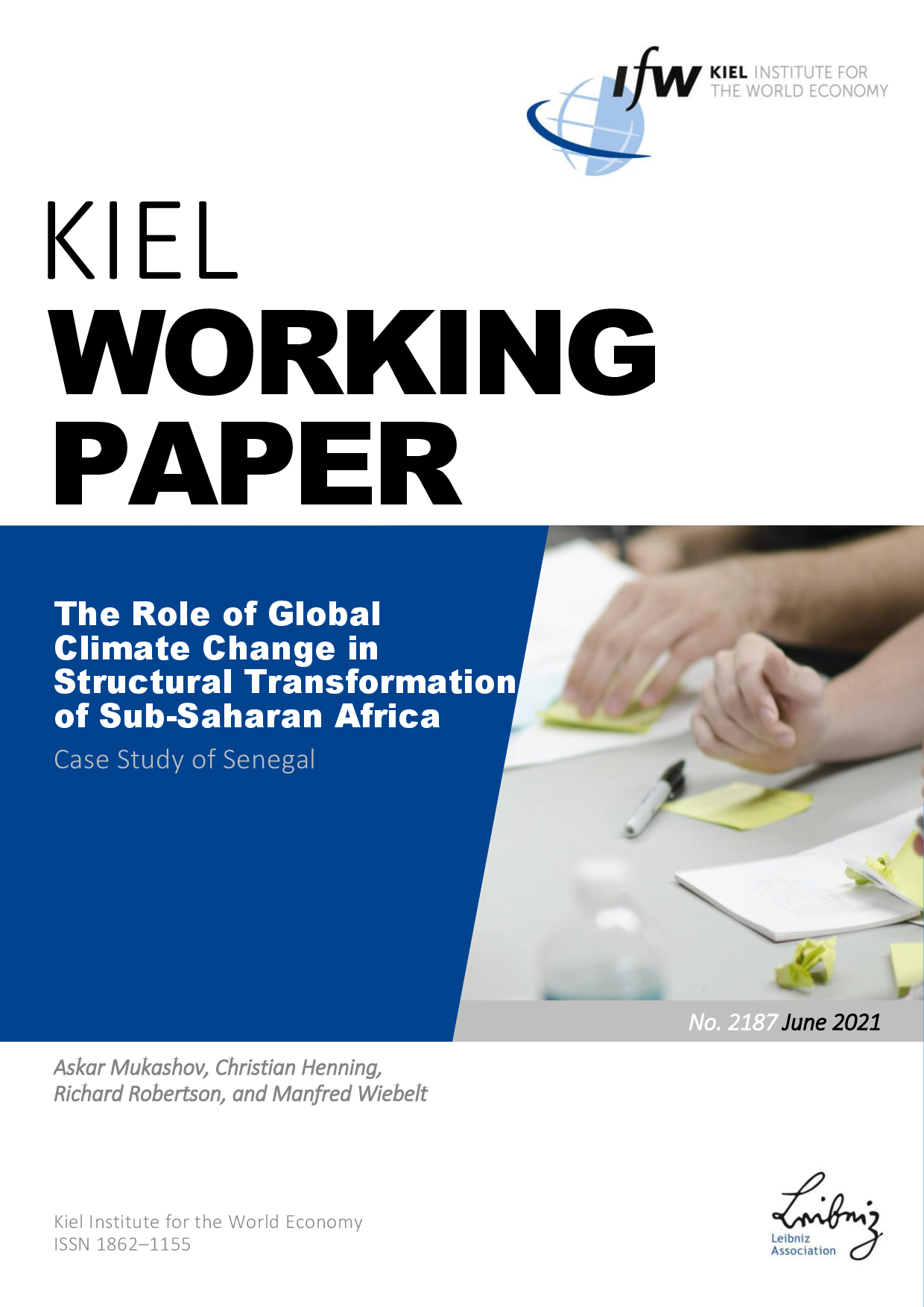Working Paper
The Role of Global Climate Change in Structural Transformation of Sub-Saharan Africa
Authors
Publication Date
JEL Classification
Key Words
Related Topics
Africa
Climate
Emerging Markets & Developing Countries
Labor Market
Migration
Sustainable Development
With increasing evidence that rural households in Sub-Saharan Africa (SSA) opt for deagrarianization as an adaptation strategy to climate change, it is becoming important to understand the role of Global Climate Change (GCC) in ongoing structural transformation processes in these countries. We use Senegal as a case study country and analyze how various GCC scenarios affect the country's economic sectors, households' welfare, and structural transformation patterns. Our simulation results suggest that GCC can increase the country's deagrarianization pace, with industrial and service sectors in the capital Dakar being the most important destinations of the former agricultural labor force. Although unplanned urbanization smoothes the overall negative impact of GCC and decreases spatial income disparities, uncontrolled deagrarianization is also associated with negative externalities. Previous growth-focused studies suggest that services partaking in Senegal’s deagrarianization can hamper its long-term growth prospects, and our results suggest that productivity increase of services can redirect part of the former agricultural labor force towards industrial sectors.






